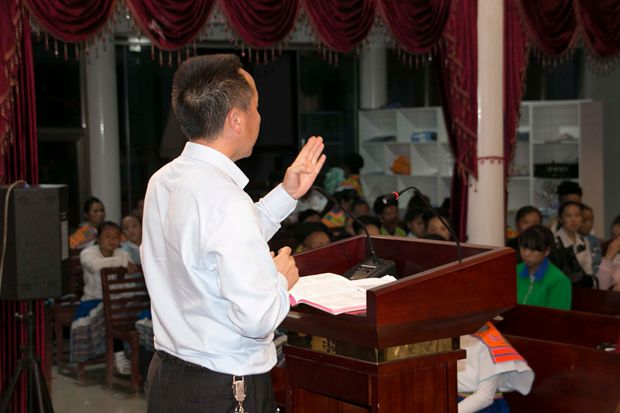There goes an interesting saying inside the Chinese Christian community that pastors and ancient emperors share a significant similarity — both are incredibly lonely. An emperor's loneliness is evident even in how they refer to themselves. The Chinese idiom “to style oneself king” (称孤道寡) originates from emperors calling themselves “gu” (孤) or “guaren” (寡人, which means a loner). Both terms convey the emperor’s isolation and loneliness.
Similarly, the pastor's loneliness is inherent to their role. While people tend to gather together, pastors often choose to go against the current and face challenges alone. Pastor Liu has been serving full-time in a southern city for several decades, voices out his insights about pastors' loneliness.
Pastors have little connection with each other.
Deeply aware of the hardships faced by this group, Pastor Liu believes it is crucial for pastors to build deep relationships with one another among various kinds of challenges.
Currently, according to Liu, there is little connection between different churches and little contact among church staff. What often happens is this: a pastor feels weak, but no one shows concern for them. Even though they are colleagues, there is little understanding or close connection between them.
“If you leave the church, who will care about you?”
Once, Pastor Liu was chatting with another pastor and brought up a preacher who had served full-time in that pastor’s church for several years before leaving for some reason. Pastor Liu asked where that preacher was now, and the pastor honestly replied, “I don’t know.” The preacher had never contacted him since leaving the church, as if he had vanished.
Pastors who leave a church are often left uncared for and forgotten. Even those still serving in a church often receive inadequate concern from other pastors. If one is hurt, it often goes unnoticed; even if it is noticed, few people care. Many leave their churches because they are not well-protected by the church and its pastors, leaving them with deep emotional wounds and sorrow.
Even when two churches are very close, sometimes just next door, there is often mutual indifference. “You don’t care about them, and they don’t care about you,” says Pastor Liu.
"True friends can be found in society but not in the church."
Liu believes that, compared to other groups, pastors need to establish partnerships with each other even more. Church members may highly respect them, but they often find it difficult to express their true situations to the congregants. In such cases, internal communication within them becomes very important.
A workplace friend of Pastor Liu once said, “My friends are not Christians, but if something happens to me, they immediately drop everything and help me wholeheartedly.” He continued, “In the church, if something happens to me, others say they will pray for me, and then nothing happens. Often, I don’t even know if they really prayed. Few people say, ‘I can help you.’”
Liu observes that when pastors meet, they nod or chat symbolically for a moment but rarely engage in deep conversations. In such an environment, if something serious happens to a pastor, others are unlikely to help. Because there is no relationship, which means no love.
Liu said, “If pastors themselves cannot love one another, how can they stand at the altar and teach Christians to love each other?”
- Translated by Abigail Wu












